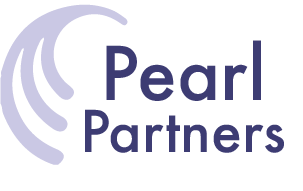Companies listed in Fast Company’s “World’s Most Innovative Companies in 2015 in Health Care”
If the medical industry doesnt figure out how to make products that fit consumer lifestyles, the consumer companies will figure out how to make healthcare products!
That quote has been my mantra for the last three years and guess what: It’s come true.
In a classic case of market disruption, start-ups and entrepreneurial companies are beginning to change the healthcare landscape in fundamental ways. Traditional medical companies are struggling to adapt to such a new, foreign environment. But to me it doesnt really seem so new.
The same thing happened to consumer product companies years ago. They often competed on technology advances, increased optimization, but reduced choice for consumers. Eventually, the players who won were the ones who learned how to satisfy consumers in better ways, resulting in more choice, lower volumes, products where and when you want them, etc. The very best have learned how to anticipate consumer behavior by understanding the motivations that drove their decision-making.
A similar thing then happened with B2B companies. At first it was thought they were immune to the power of the consumer. But then the most savvy learned to treat their industrial customers as consumers, since their buying decisions are often driven by similar motivations. The best evolved to serving B2B2C markets, which raised the stakes by requiring an end consumer mindset to compete in B2B settings.
Eventually the medical industry will need to learn a similar lesson.
I started my career as an engineer in the medical industry, and Ive been heavily immersed in it again for the last several years. Although my role has changed significantly from engineering to creating new market opportunities, Im constantly reminded how little the medical industry has changed in that time. My career evolved in the consumer and B2B industries, leading programs and teams to push the envelope to help these industries compete and thrive in their new environments and I have experienced the market successes as proof that it works.
Its from this perspective that I see tremendous opportunity across the entire healthcare ecosystem. Early successes by companies like Omada Health and the others that were named in Fast Companies list of 10 most innovative healthcare companies of 2015, are only scratching the surface. But they are proving once again that winning offerings are the ones that satisfy fundamental decision motivators. These disruptors are applying consumer-oriented mindsets to how they serve not just patients, but the entire medical community.
But this will require a huge cultural shift. There are huge (and necessary) constraints in the medical industry, just as there were often constraints in the consumer and B2B industries. But innovative problem finding, creative problem solving, and world-class design talent thrives on working with constraints. The bigger challenge will be in recognizing which aspects of the process do not need to be burdened by the constraints.
We have been educated by the consumer and B2B2C industries that we can expect products and services to be tailored to our needs. In one way or another we are all consumers of healthcare, and once again we will expect the same level of thoughtful consideration to our needs. Thats a pretty big market to ignore. Change may be scary, but were at the point where it will be far more scary to stay the same.

